London mayor election: Bots, misleading URLs cause voter confusion
- Published

A quarter of London mayor candidates have had spoof websites created using their name in the URL
The London mayoral election is seeing voters being faced with the prospect of fake news from many sources.
The BBC has found a number of misleading website URLs using election candidate names that redirect to the Russian government website - it is not believed to be the work of the Russians and no-one knows who is responsible.
Earlier this week #LondonVoterFraud was trending on X after being reposted by hundreds of fake accounts - in this case, again no-one knows who created the social media bots.
And Labour has set up an anti-Susan Hall website with a url of her name. Although in a search the website may appear to be about the Conservative candidate, Labour say the site clearly shows who published it and no electoral rules were broken.
A similar website with the same format of url but in Sadiq Khan's name also exists, but the Conservatives say it has nothing to do with them and say they did not purchase that domain name.
Hashtag hacking
On Monday, multiple accounts on X, formerly Twitter, were sharing inspirational quotes along with the hashtag London Voter Fraud. The repetitive use of the hashtag meant, that for a period of time, it was the top trending topic in the UK.
Many of these accounts appeared to be bots - some had been created very recently, others had no followers or profile pictures and a number of them had never tweeted in English.
Dr Jon Roozenbeek is an expert on misinformation and a lecturer in Psychology and Security at King's College, London.
He said "it sounds like someone is hashtag hacking", adding that, "this means someone has programmed bots in an unsophisticated manner to get the hashtag trending so they don't care what the bots tweet out alongside the hashtag".
So, why would someone bother to do this?
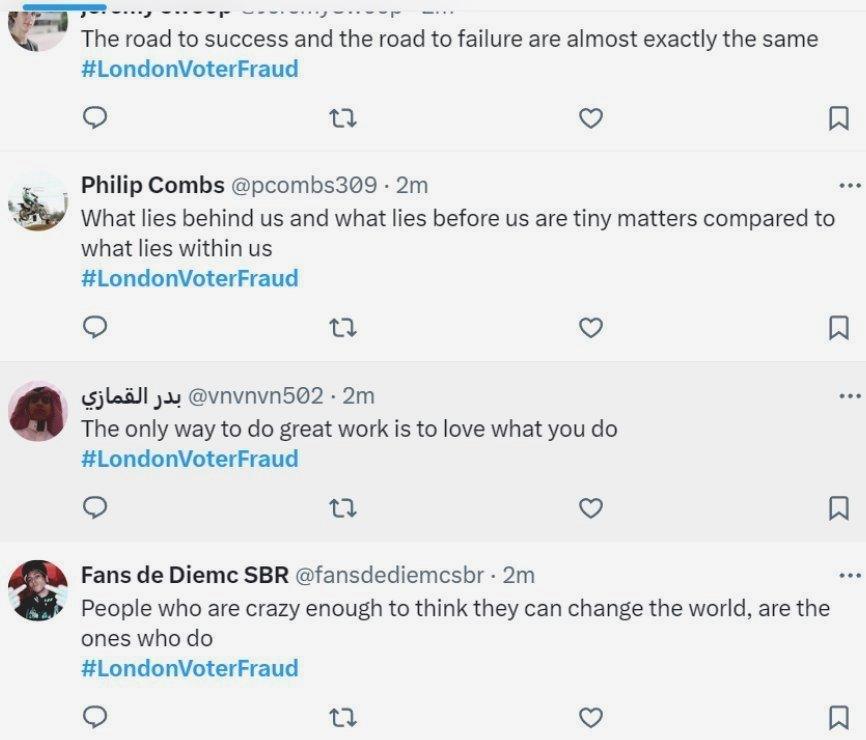
The hashtag LondonVoterFraud was trending on X recently
"The objective of this seems to get real people talking and thinking about the topic of voter fraud," Dr Jon Roozenbeek said.
"Whoever is behind it will want people to start thinking that this is a real problem that warrants attention."
Dr Sarah Hodge, a cyber-psychologist from Bath Spa University told the BBC that "we don't know what the motive is behind this but seeing this hashtag trending so close to an election it could influence the outcome whether that is the motivation or not".
She added that bots are more prevalent than we might think but "it's difficult to know a lot about what is going on behind the scenes".
When it comes to misleading domains, the BBC found a total of six URLs taking viewers to an English language version of the official Russian government website.
It is unknown who is behind the purchase of the domains or if there are further domains that use London mayoral candidate names.
Liberal Democrat candidate Rob Blackie is one of the targeted candidates.
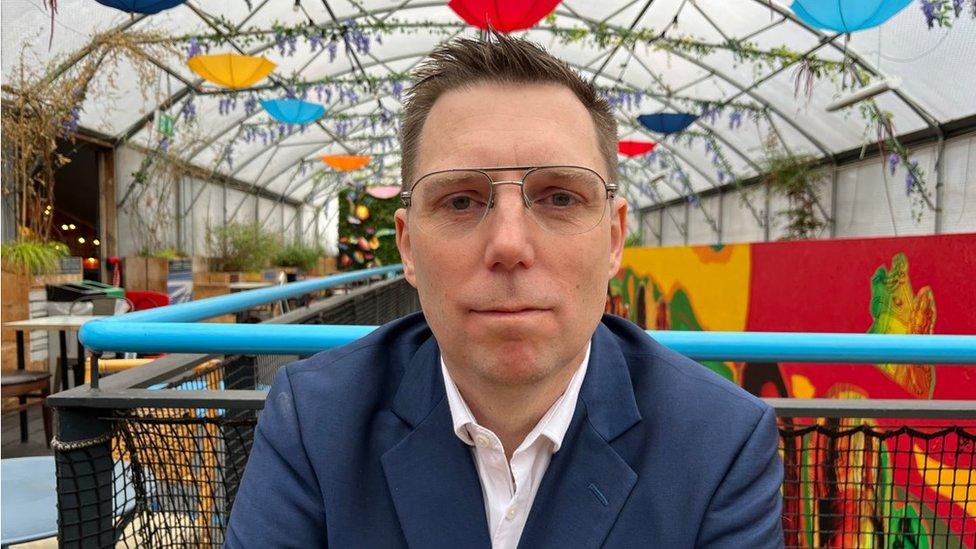
Rob Blackie says he is both amused and worried about this
Mr Blackie said it was both "amusing and worrying" and thinks he might have been targeted as he runs a website dedicated to "bring independent news on Ukraine to people across Russia".
There are two domains in his name that redirect users to the Russian government website.
It is not known who has purchased the various domain names, but the BBC understands they were bought at the beginning of April.
'Not Russian tactics'
Dr Roozenbeek told the BBC he "highly doubts it's the Russians behind it as they don't usually operate this way".
"It's more likely a practical joke or someone attempting to create a smear campaign," he explained.
"Usually Russians set up their own fake news websites and Twitter bots to spread misinformation; the whole point of their involvement is you usually don't know they are behind it."
Other candidates who have also been targeted are Reform UK candidate Howard Cox and SDP's Amy Gallagher.
Mr Cox said he was "livid about this fraudulent behaviour".

SDP's candidate Amy Gallagher has three websites with her name in the domain that redirects to the Russian government website
Meanwhile, Ms Gallagher, has been targeted with three fake domains that include her name.
She said this was a "direct attack on democracy" and she was was concerned that "people will assume that I'm connected to the Russian government in some way, which I am not, and this will deter them from voting".
Chief commercial officer (CCO) of Com Laude, Stuart Fuller, a domain name management company, said the problem of domain names being set up in political candidates' names is "more common than you may think" and happened during the 2016 US elections.
Mr Fuller explained that the people behind this may do it to cause reputational damage.
"Domain names registered that direct to embarrassing content can cause reputational issues and so a quick resolution is necessary," he told the BBC.
Unfortunately, there is "very little" candidates can do to protect themselves when no law has been broken.
Confusing domain names
The cost of the domain names for these websites is unknown, as Mr Fuller explains that how much someone would have paid depends on which domain extension they purchase - for instance, a .co.uk domain will cost more than a .london one - and how high a profile the candidate has.
Confusing domain names also appear to be one of the tactics used by the political parties in this election.
The BBC found one website with a Sadiq Khan domain name that in an internet search may look like campaign material.
The link actually takes you a blog page accusing the incumbent mayor of making London's roads unsafe.
A Susan Hall domain name website may appear in a search to be about the Conservative candidate, but it is actually an anti-Susan Hall campaign that has been created and promoted by London Labour.
The Labour Party said the website clearly stated who was responsible for publishing campaign material and who they were promoting, so it did not break any of the electoral rules.
The Electoral Commission said there were no laws "concerning the use of website domain names by candidates".
Both Labour and the Conservatives have accused one other of spreading misinformation and promoting fake news.
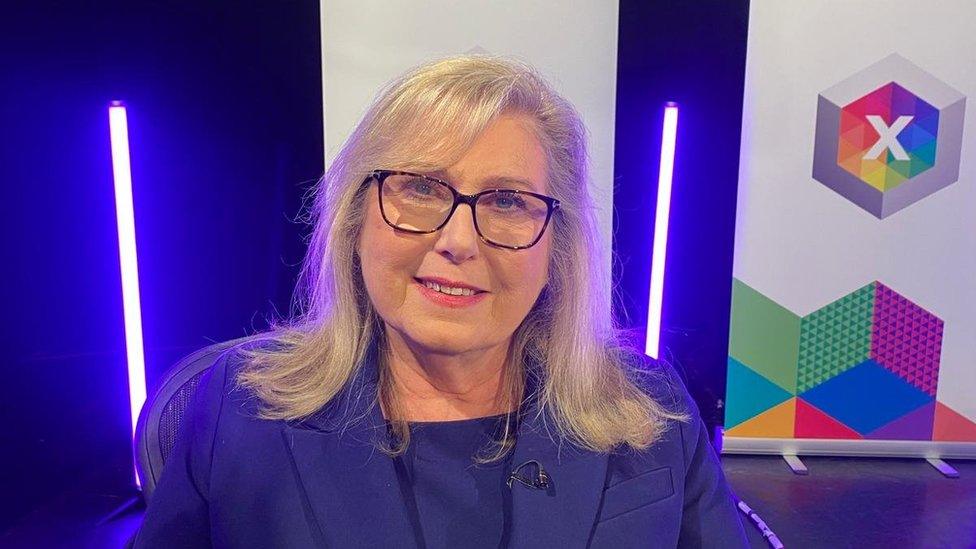
A Susan Hall domain name website redirects to Labour party promotional material
A campaign source for Ms Hall said that Mr Khan's team was wrongly publicising the fact that she would cancel free school meals, something she has said she would continue if elected.
Mr Khan's team alleges that Conservative Party employees are "running a network of anti-Ulez Facebook groups riddled with racism and abuse", external.
The Conservatives said it would review "processes and policies" around Facebook groups but didn't say whether the groups were funded centrally.
Two spoof websites using mayoral candidate Brian Rose's name in the URL redirect people to Ms Hall's official campaign.
Mr Rose, who is standing as a candidate for the London Real Party, told the BBC it was "outrageous that my personal name and brand have been hijacked".
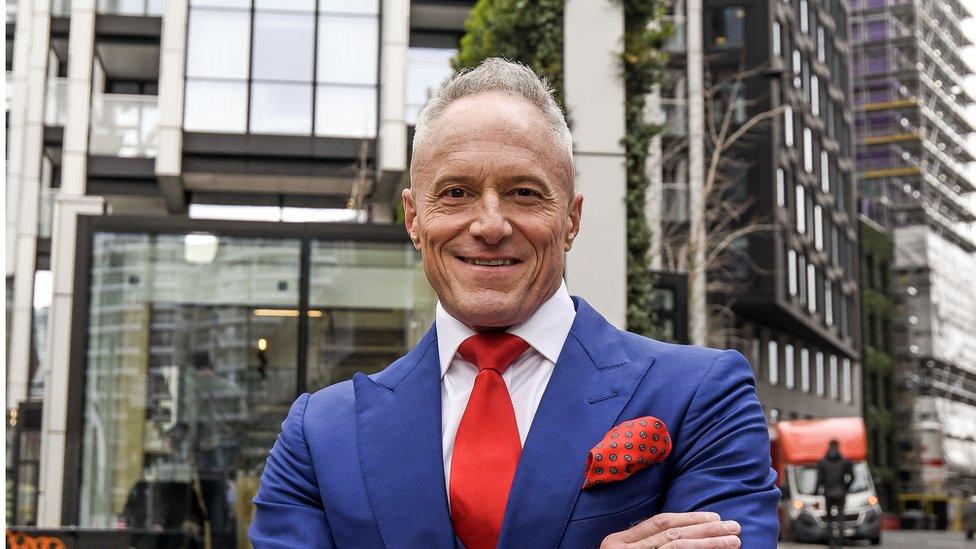
There are two websites in Brian Rose's name that redirect to Susan Hall's official campaign
He added that it suggested that someone was "running scared that voters are attracted to my innovative manifesto and business experience".
Ms Hall confirmed to the BBC that the two domains had not been not bought by her team and they had no knowledge of who had purchased them.

Listen to the best of BBC Radio London on Sounds and follow BBC London on Facebook, external, X, external and Instagram, external. Send your story ideas to hello.bbclondon@bbc.co.uk, external
Related topics
- Published25 April 2024
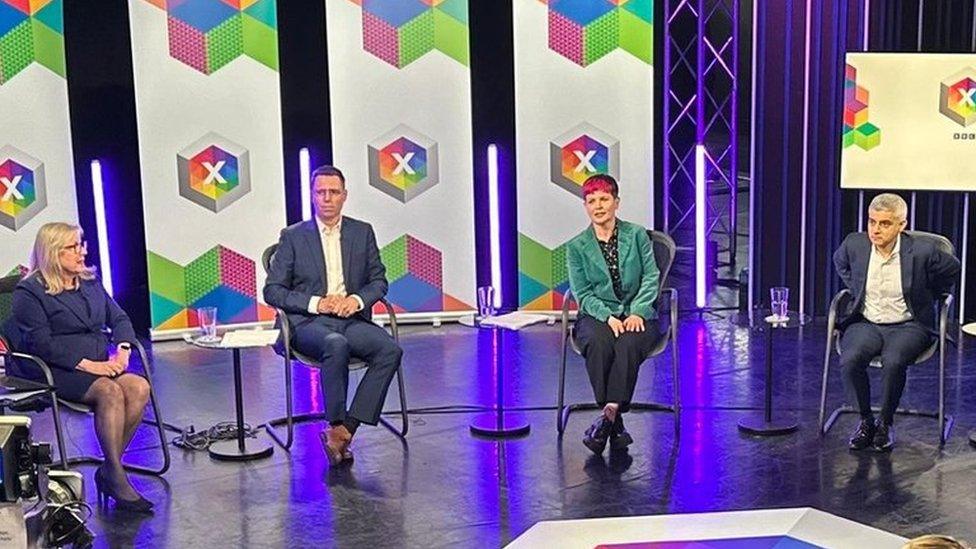
- Published13 February 2024
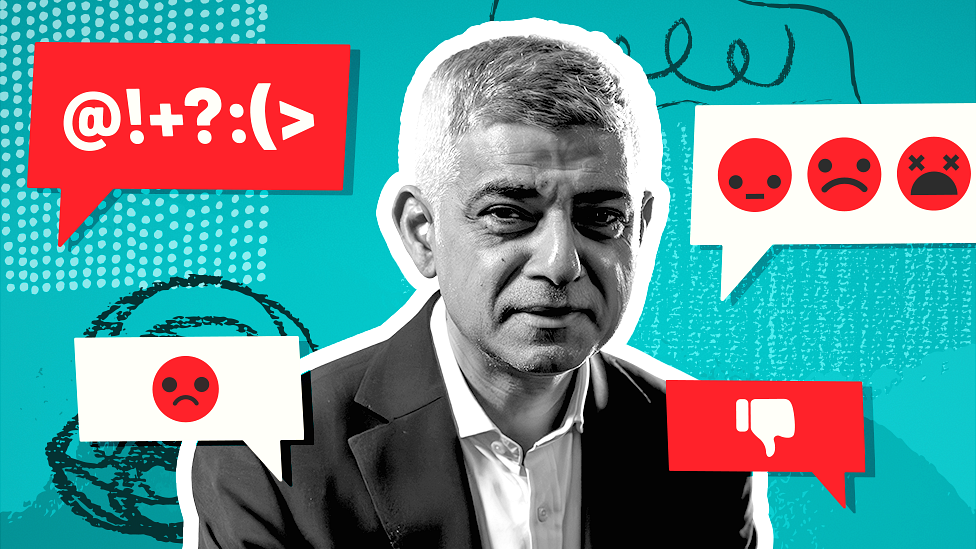
- Published3 February 2024
